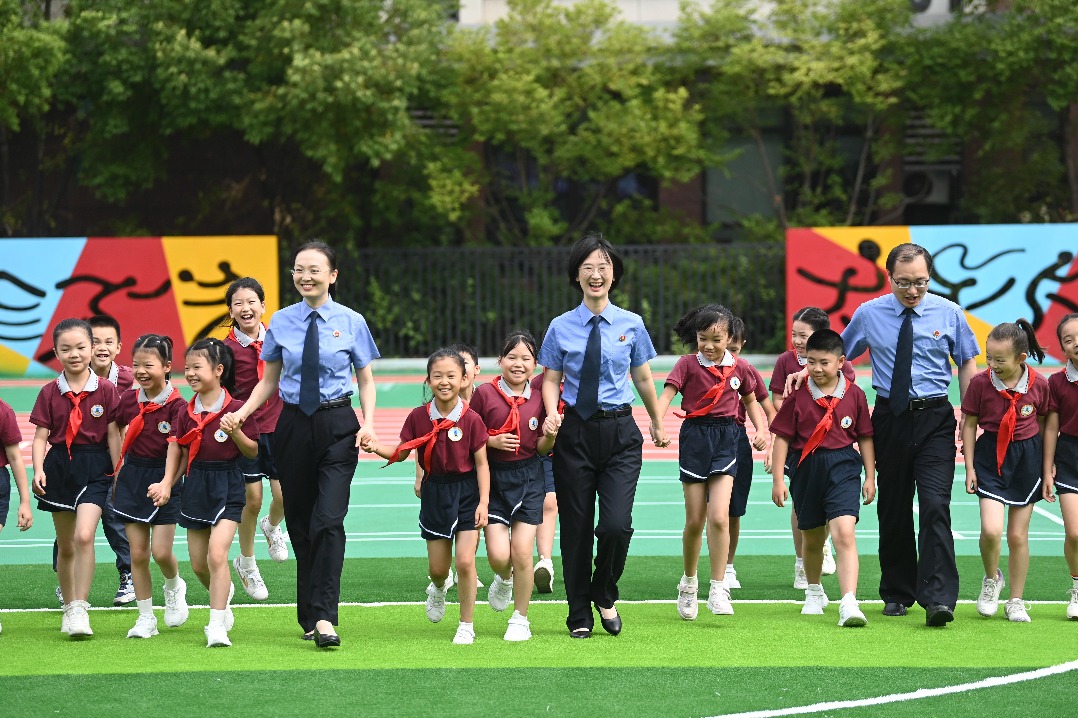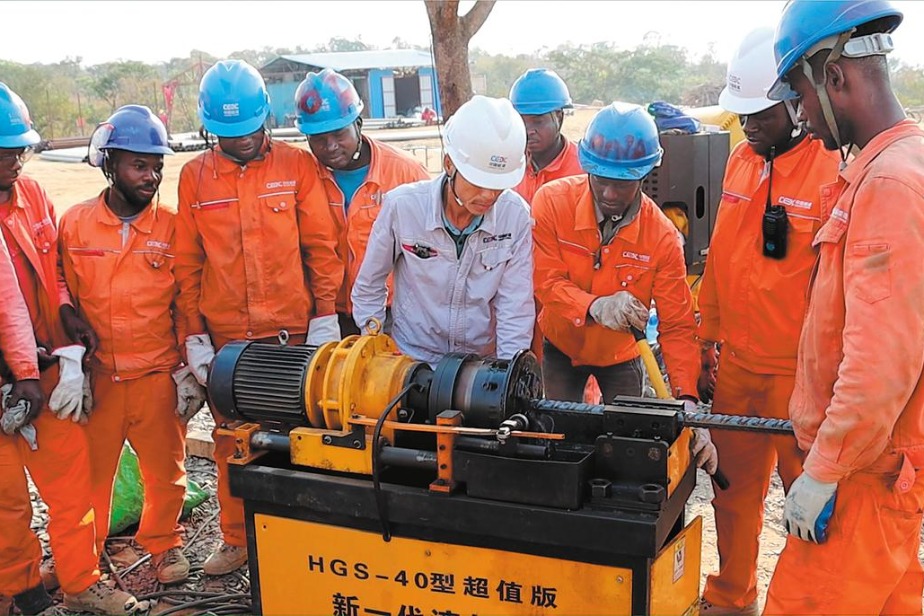Rule of law sets tone for Party session


Improving socialist system, modernizing capacity for governance CPC's major missions
Advancing the rule of law will play an important role in improving the socialist system with Chinese characteristics and the country's governance capacity, legal experts said.
The remarks were made before a key meeting of the central leadership, which runs from Monday to Thursday in Beijing.
At the opening of the Fourth Plenary Session of the 19th Communist Party of China Central Committee, Xi Jinping, general secretary of the CPC Central Committee, delivered a work report on behalf of the Political Bureau of the CPC Central Committee.
He also explained a draft document of the CPC Central Committee's decision on some major issues concerning how to uphold and improve the system of socialism with Chinese characteristics and advance the modernization of China's system and capacity for governance.
No details of the work report or the draft decision were released on Monday.
At a meeting of the Political Bureau on Thursday, leaders agreed that upholding and improving the system of socialism with Chinese characteristics and modernizing China's system and capacity for governance are major strategic missions for the Party.
To achieve these goals, a strong Party leadership and running the country by the rule of law must be upheld, according to a release from the meeting.
"To further advance the rule of law is an essential requirement and key guarantee for improving socialism with Chinese characteristics and governance capacity," said Ruan Chuansheng, a law professor at Shanghai Administration Institute.
In October 2014, the development of the rule of law was discussed as a major topic at the fourth plenary session of the 18th CPC Central Committee. It was the first time a plenary session of the CPC Central Committee had made the rule of law a central theme.
When the meeting concluded, a decision on "major issues concerning comprehensively advancing rule of law" was adopted that said China would work to build a law-abiding government and ensure the leadership of the CPC operated within "a socialist rule of law with Chinese characteristics".
"It showed the significance of the rule of law for the country's development, and the high attention the central leadership pays to it," Ruan said, adding that he believed the issue will remain a topic at the ongoing plenary session.
"Advancing law-based governance is a long-term job," he added.
Progress made
Looking back over the past five years, Ma Yide, a law professor at Zhongnan University of Economics and Law, said the country has made great progress in Party building, legislation and fighting corruption.
On March 11, 2018, a constitutional amendment was adopted at the National People's Congress, the nation's top legislature, stipulating that, "the leadership of the Communist Party of China is the defining feature of socialism with Chinese characteristics".
On March 17, 2018, Xi Jinping was elected Chinese president and chairman of the Central Military Commission. After being elected, Xi took the solemn oath to uphold the Constitution — the first time a Chinese president took a public oath of allegiance to the document upon assuming office.
"The oath showed respect for the law and a strong determination to govern the country by the rule of law," Ma said.
Specific measures to uphold the Constitution actually started to be rolled out after the fourth plenary session of the 18th CPC Central Committee. On Nov 1, 2014, the NPC Standing Committee decided that every Dec 4 would be National Constitution Day.
Since then, various activities related to the Constitution and other laws were conducted across the country around Dec 4 every year, helping the public better understand, respect and abide by laws.
Another breakthrough in the rule of law in recent years was the adoption of the country's first Supervision Law in March 2018 — and the establishment of supervisory commissions across the country — which improved the country's supervisory system and intensified the fight against corruption.
The law stipulates the responsibilities, powers and means of investigating by supervisory commissions. Shuanggui, an intraparty disciplinary practice that requires a Party member to cooperate with questioning at a designated place and time, was scrapped.
Ruan said the new supervisory system serves as an important institutional tool to realize law-based governance and modernize State governance.
"It prevents supervisory commissions from abusing power, and protects the legitimate rights of people under investigation," he said.
Ruan said that in the past year, half or even more of the trainings and lessons he has given to supervisory commission officials have focused on the Supervision Law and its relevant laws, such as the Criminal Law and the Criminal Procedure Law.
"Awareness of them has been on the rise," he said.
Apart from the Supervision Law, the country has also adopted a large number of new laws and amended many others in the past five years.
Ma, also a national legislator, has participated in the creation of some of the new laws including the E-commerce Law and Foreign Investment Law.
"Our legislation has focused more on regulating the market, improving governance capacity and strengthening security, the environment and livelihoods," he said.
For example, the NPC revised the Environmental Protection Law and the Air Pollution Prevention Law and passed the Soil Pollution Prevention Law over the past five years.
Looking forward
Yang Weidong, a law professor at the Chinese Academy of Governance, said accomplishments in advancing the rule of law in recent years will contribute to the country's future development in various aspects.
The rule of law and the main theme of the ongoing meeting are inseparable, and they complement one another, he said.
Yang Xiaojun, another law professor at the academy, said, "I'm looking forward to seeing more specifics of advancing law-based governance discussed or issued at the plenary."
- Cultural vibrancy shines in Xinjiang
- Ethnic unity powering social progress, prosperity
- Prosecutors eye tech edge to combat financial crimes
- Xi: Pool efforts to build 'beautiful Xinjiang'
- Police called in after investigation into food safety incident at Shanghai schools
- Shanghai Sports Festival sparks citywide fitness fun





































